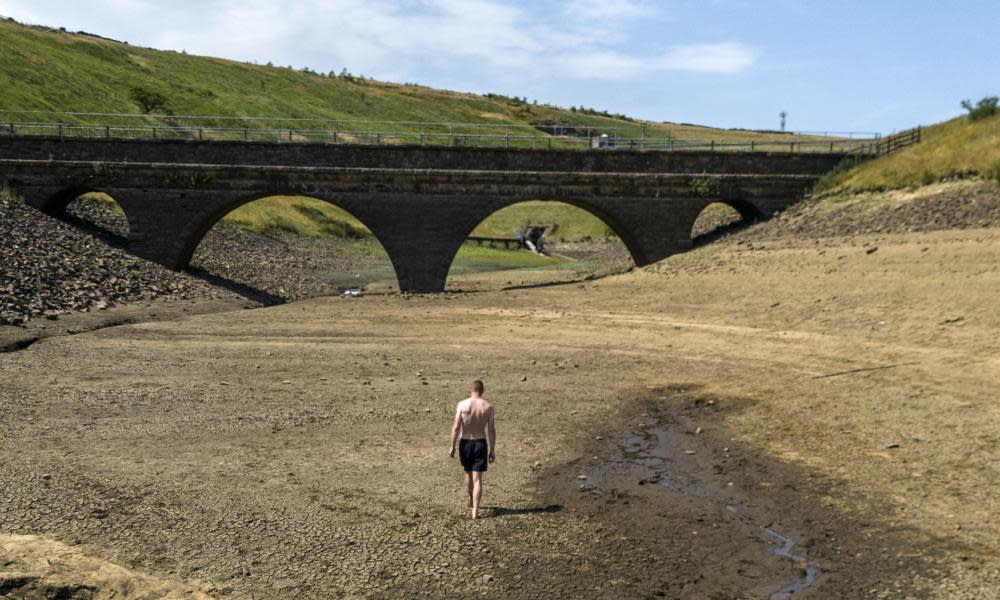England’s water crisis should be blamed on privatisation

The crisis facing the nation’s water supply because of the drought (Ban bonuses for water firm bosses until they fix leaky pipes, say Lib Dems, 8 August) reminds me of the words of Dr Jack Cunningham MP, who was Labour’s shadow environment secretary at the time of water privatisation in 1989.
As the bill to privatise the water industry in England and Wales was going through parliament, I interviewed Dr Cunningham for a political programme called Agenda transmitted by Television South. Dr Cunningham (now Baron Cunningham of Felling) said it was appalling that a natural resource like water should be put in the hands of people with a profit motive. It was unbelievable, he said, that the provision of such a resource should be subjected to commercial criteria like any other commodity. He thought the ultimate losers would be the public.
Twenty-eight years later, in 2017, opinion polling indicated that 83% of the British public would like to see renationalisation of all water services. In the same year, research by the University of Greenwich suggested that consumers in England were paying £2.3bn more every year for their water and sewerage than they would be if the water companies had remained under state ownership. As the disaster of water privatisation becomes ever clearer, I think Lord Cunningham has every reason to say: “I told you so.”
Preston Witts
Bidford-on-Avon, Warwickshire
• I would go further than the Lib Dems’ proposal: set tough legal requirements, and create the means to police them adequately, to fix leaks, build reservoirs, and curb the discharge of untreated sewage into rivers and coastal areas. Create a deadline and make it clear that if the targets have not been met, swingeing fines will be issued, equal to the total value of the company.
In other words, fix the problems or you’ll be nationalised with no compensation. At that point “shareholder value” is maximised not by profits continuing to go to bonuses and dividends at the expense of consumers, but by preventing the company’s value being reduced to zero as a result of fines. So that will mean no bonuses or dividends, but all operating profits to be ploughed back into the necessary improvements. If the targets are achieved, normal business can be resumed, as long as the new infrastructure is maintained and incrementally improved.
That should fix it, and the model could be applied to other failing industries that were formerly publicly owned utilities.
Pam Lunn
Kenilworth, Warwickshire
• Based on the figures given for baths and showers in your article (Flushing the loo to gardening: how to save water around the home, 9 August), baths seem to use less water, especially if someone gets in after you. I like it hotter, so I always go first.
Robert Kelso
Frome, Somerset
• Ten-minute showers?! Submariners wet for 10 seconds; soap and scrub; rinse for 10 seconds.
Brian Marshall
Butleigh, Somerset
• In Japan, to save water, washbasins are mounted on top of the toilet cistern so that the waste water from hand washing flows directly into the cistern, which is then used for flushing.
Alan Couchman
Cork, Ireland
• On Monday and Tuesday this week, I observed people pushing trolleys laden with bottles of water away from shops. Is this the 2022 equivalent of toilet paper hoarding?
Amanda Epps
Charlbury, Oxfordshire
• Have an opinion on anything you’ve read in the Guardian today? Please email us your letter and it will be considered for publication.

 Yahoo Movies
Yahoo Movies 
